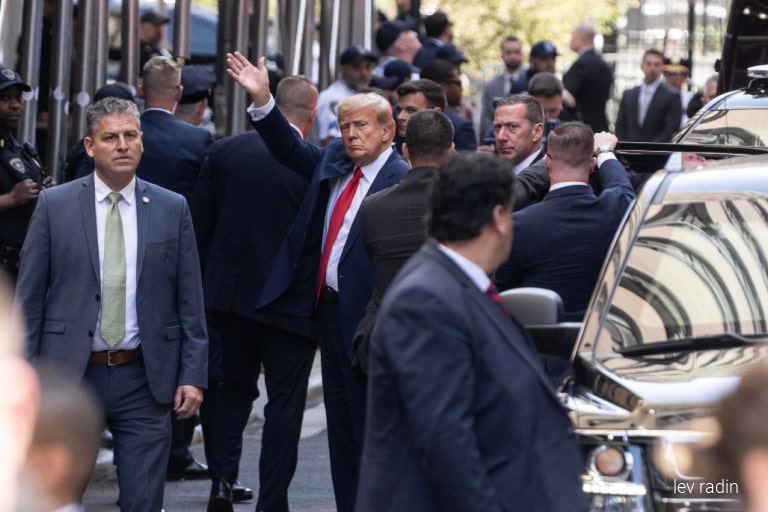By Thomas Gift, Associate Professor of Political Science at University College London, Director of the Centre on US Politics (CUSP)
Editor’s Note: While the following Q&A was conducted a few weeks ago, iDose has still decided to post it given its relevance.
What’s the case against Trump about?
The main issue at stake is hush money paid to adult film star Stormy Daniels, who says that she had sex with Trump in 2006. Trump denies the affair. But he’s admitted to knowing that his former lawyer Michael Cohen paid $130,000 to Daniels in the days prior to the 2016 US election. There’s nothing illegal about paying an individual for silence via a nondisclosure agreement. Yet because Trump was running for president at the time, the payment could be construed as a violation of campaign finance laws. Cohen received jail time for his involvement in the case, and now Manhattan district attorney Alvin Bragg – a Democratic appointee – is pushing for a potential indictment of Trump.
Does the prosecution have merit?
The wisdom of charging Trump is being seriously questioned — and not just from MAGA allies. It’s possible to have a substantive debate about the merits of the prosecution. But lots of experts suggest that the case is, in the words of one lawyer, “long on politics and short on the law.” And even if there is a technical crime, many suggest that it’s likely to be minor. Prosecutor Alvin Bragg insists that he’s just following where the facts lead. But politics is inescapable in a case like this. Of all the legal woes that Trump faces right now, this case is probably the weakest. It’s worth noting that the US Department of Justice has long declined to prosecute Trump over precisely this charge.
What does it mean if Trump is the first ever former US president to be indicted?
A possible indictment raises all sorts of questions about political norms. Just because Trump is a former president doesn’t give him de facto immunity. But to indict not only a former president, but also the most likely Republican nominee for the White House in 2024 is a big deal. For prosecutors, the problem is that this case isn’t legal a slam dunk. Skeptics will say that Trump’s payment of hush money is unseemly. They’ll say that it raises doubts about Trump’s fitness to serve. But they’ll say that these are political questions, and voters should be able to decide for themselves how to evaluate his conduct.
How could the prosecution affect Trump’s campaign?
An indictment would be a distraction. But politically, it’s hard to think it won’t play right into Trump’s hands. We know the drill. For Trump, everything is a witch-hunt. Everything is a personal vendetta. Everything is a George Soros-funded hit job. And here we have a district attorney serving up on a silver platter another excuse for Trump to use this kind of language. In some ways, Trump might want this fight because it distracts from other cases, and because it’s difficult for Trump’s critics to say that there’s no chance of this being an overzealous prosecution. For Trump, it’s all about convincing voters that, if the defendant’s name were John Smith and not Donald Trump, an indictment would never be forthcoming.
How is Trump’s base responding?
Dyed-in-the-wool Trump supporters — the “true believers” — aren’t just going to let an indictment go. Even if protests don’t escalate into violence, anger will clearly build. Trump’s base has never needed much coaxing to get into a defensive position. An indictment would be the ultimate take-down of “their guy,” and Trump is doing nothing to tamp down those passions. His recent warning about “big problems” coming if he’s indicted have a “stand back and stand by” vibe to them: protest now—but be prepared for more later. We all know where that led with January 6th. It’s dangerous, and it raises real security concerns.
What are the broader political ramifications of this case?
The big risk for Democrats is that if voters see this case as a “witch hunt,” they might start seeing other cases against Trump in the same way. They’ll look at the thinness of the evidence, and think: Maybe Trump is right. Maybe the powers that be — the “deep state,” elites, the media, big tech, etc. — are out to get him. That could undermine other legitimate allegations that have been levied against Trump in the past. It could also raise suspicions about a flurry of cases that Trump is knee-deep in, such as Justice Department probes into the “Stop the Steal” movement and his handling of classified documents. The bottom line: this arms Trump with lots of political ammunition.
Thomas Gift is Associate Professor of Political Science at University College London and the Director of the Centre on US Politics (CUSP)
Note: The views expressed in this article are the author’s, and not the position of Intellectual Dose, or iDose (its online publication). This article is republished from the LSE USAPP under a Creative Commons license.



